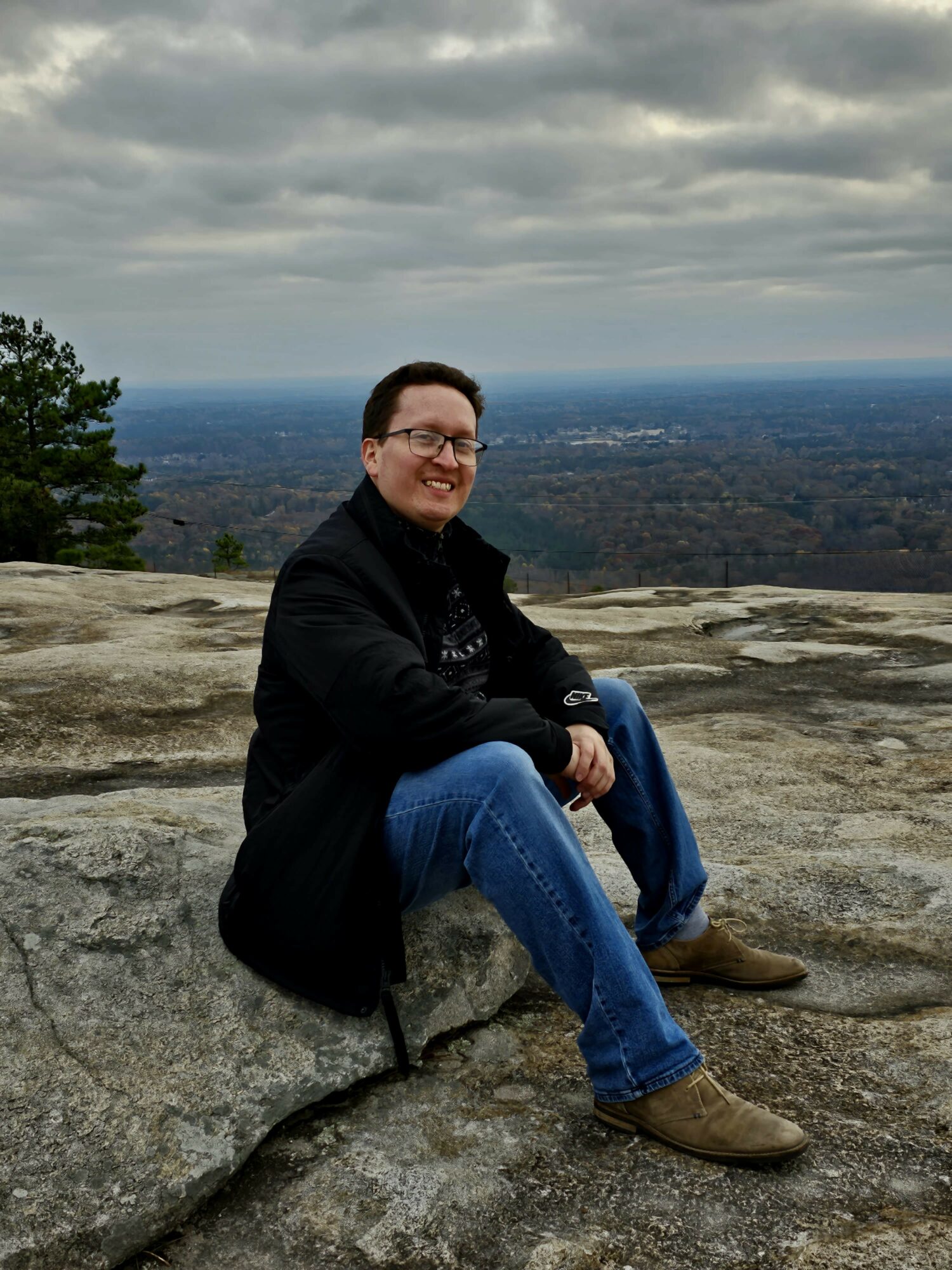

Today we’d like to introduce you to Pedro Guillermo Feijóo García
Hi Pedro Guillermo, thanks for joining us today. We’d love for you to start by introducing yourself.
My journey started in Bogotá, Colombia, where I grew up in a family with a large legacy of educators who passed down a love for teaching. My grandmother (or my “Nona,” as we say in Norte de Santander, Colombia), María Alix Fernández de García, was my greatest inspiration—her passion for education really sparked my interest in following her steps!
I got my first taste of teaching back in 2009 at Universidad de los Andes, Colombia, where I worked as an undergraduate and graduate teaching assistant for several courses in engineering and computer science. This eventually led me to a full-time faculty role at Universidad El Bosque, Colombia, in 2016, where I taught for nearly seven years courses in software engineering, both in-person and remotely.
In 2018, I moved to the US after receiving a Fulbright-MinCiencias scholarship to do a Ph.D. in Human-Centered Computing at the University of Florida. I completed my Ph.D. in the Summer of 2023, becoming the first Ph.D. in my family’s history. During my time at UF, I had the valuable experience of being an instructor of record for four years on various courses in computer science and, particularly, human-centered computing. This experience came after a great year as a leading graduate teaching assistant for a large class in software engineering.
I joined Georgia Tech in the Fall of 2023 as a Lecturer at the School of Computing Instruction. The move felt really natural, especially thanks to the transparency and kindness of Dr. Olufisayo Omojokun and my current colleagues during the interviewing process. Saying “yes” to Georgia Tech was an easy and great decision. Since then, I’ve had the opportunity to teach large and small classes in computer science, as well as grow my career as a scholar! It’s been awesome to work with students and colleagues from all over the world!
Besides teaching, I’m also doing research in computer science education and human-centered AI. Recently, I led a multi-institutional team from Georgia Tech, Arizona State, and Purdue that got a grant from the National Science Foundation to study hidden curricula in computer science. Our goal is to help students from different cultural backgrounds succeed in STEM, and I’m really excited about where this research is headed. I’m grateful to be at Georgia Tech, where I have the chance to grow as a teacher and a researcher.
We all face challenges, but looking back would you describe it as a relatively smooth road?
I have had some challenges during my process. Maybe it is because it’s the freshest experience, but my first years in the US were tough to manage. The cultural shock was huge, and it was not easy to navigate having to make a new life apart from Colombia. Friendships were not the same, as well as the sense of community I was used to in my home country.
I think my most complex challenge was processing the death of my Nona Alix in February 2019. It was not my first grief experience as an adult, but being abroad alone made it really hard. I do miss her immensely.
Also, the pandemic was not an easy experience, as everything went remote, and it was literally impossible to meet anyone new and make connections. Adding to loneliness, the uncertainty of knowing if my loved ones would be OK miles away was challenging. I wanted to be with them, but the overall crisis made it impossible.
Alright, so let’s switch gears a bit and talk business. What should we know about your work?
I’m a Lecturer at Georgia Tech’s School of Computing Instruction, where I teach computer science courses. My work focuses not only on delivering technical content but also on fostering an inclusive and supportive learning environment for students from diverse backgrounds. I aim to make computer science accessible and engaging for all.
Beyond teaching, I conduct research in Computer Science Education (CS Ed) and Human-Centered Artificial Intelligence (AI). I’m particularly proud of leading a multi-institutional research project funded by the National Science Foundation that explores the hidden curricula in computer science education. This research seeks to support students from various cultural backgrounds, ensuring equitable opportunities for success in STEM fields.
What sets me apart is my background and dedication to student well-being. Coming from Colombia, I understand the challenges of navigating education in a new cultural context, and this drives me to create an inclusive space for all my students. I take pride in blending technical education with an empathetic approach, focusing on both students’ learning and their overall well-being.
Have you learned any interesting or important lessons due to the Covid-19 Crisis?
Yes, indeed. The Covid-19 crisis made me realize how things can change out of nowhere. It taught me that things in life are not for granted, and I don’t have control over many aspects that can impact my life. It also taught me how to work online: that was an experience I would have never looked for by myself. I like people-people interactions, and I had to adapt and get used to a weird “normality” through Zoom. In my role, that was absolutely challenging! I’m an active-learning educator, and having to be online made me work on different multimedia strategies I would not have used otherwise.
Also, during and after the pandemic, I became way more connected to my parents. There is not one day I don’t call my parents, and they are usually the first voices I look to hear in my mornings.
Contact Info:
- Website: https://www.pfeijoo.com/
- Other: https://sci.cc.gatech.edu/
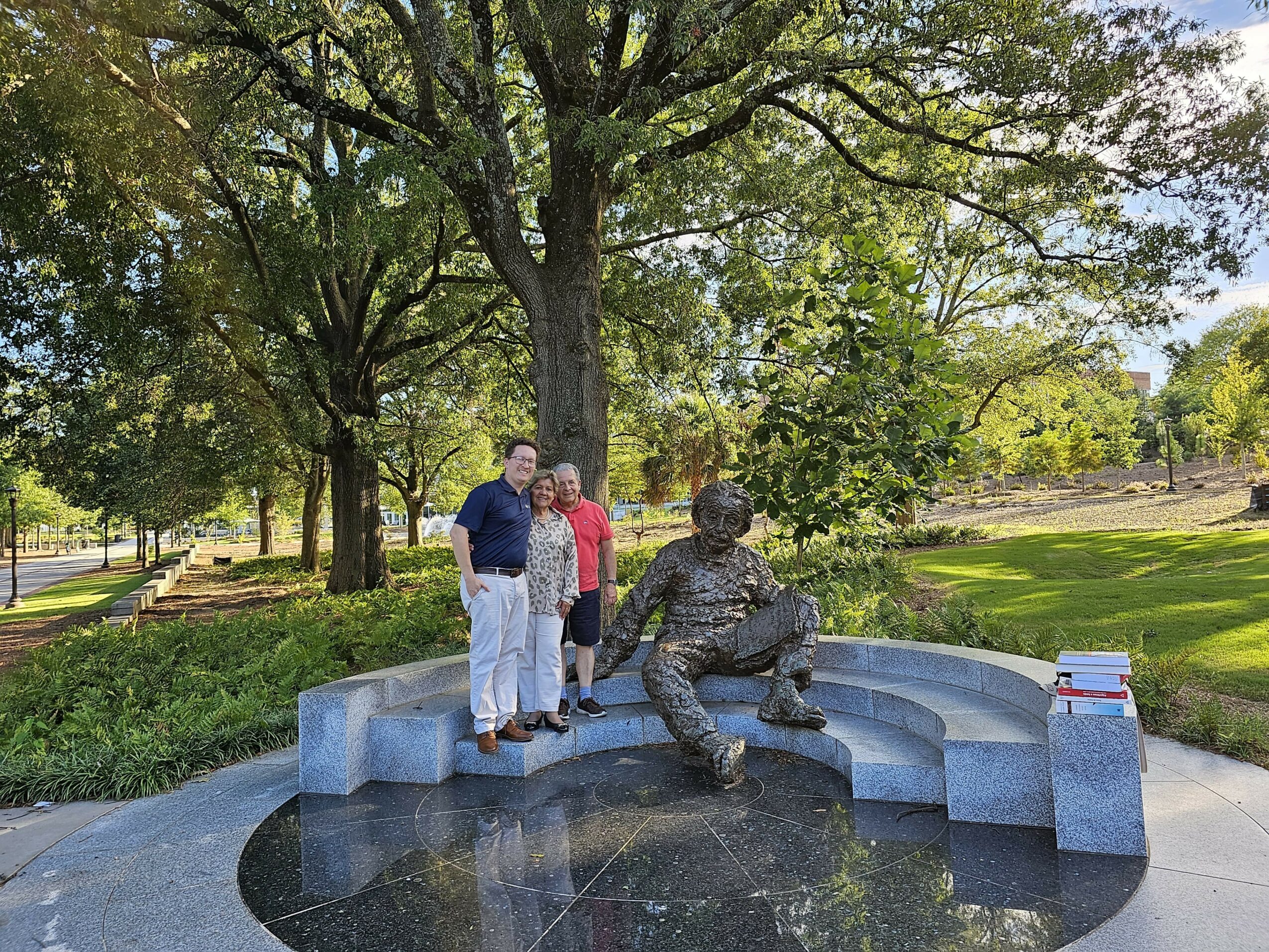

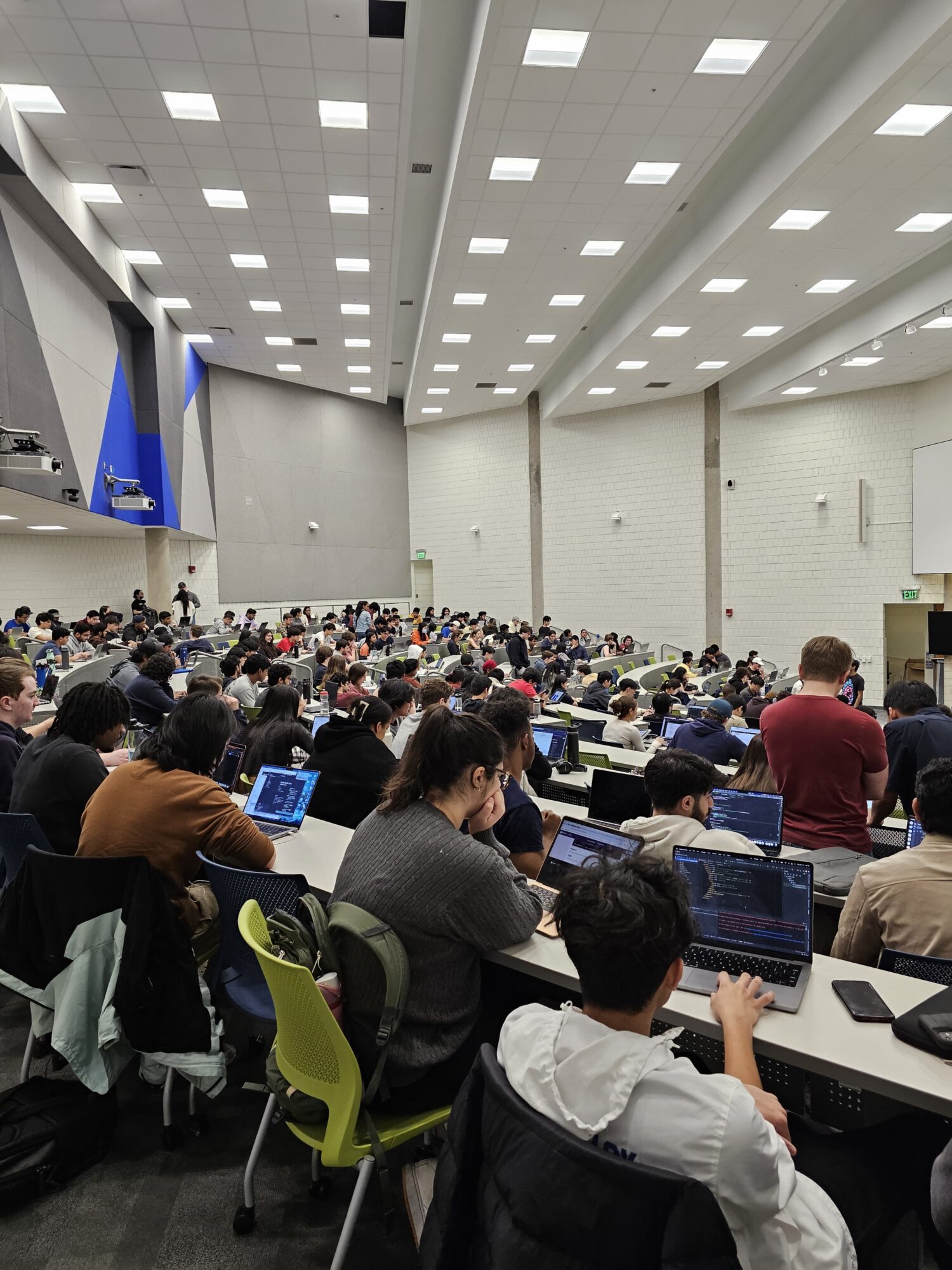
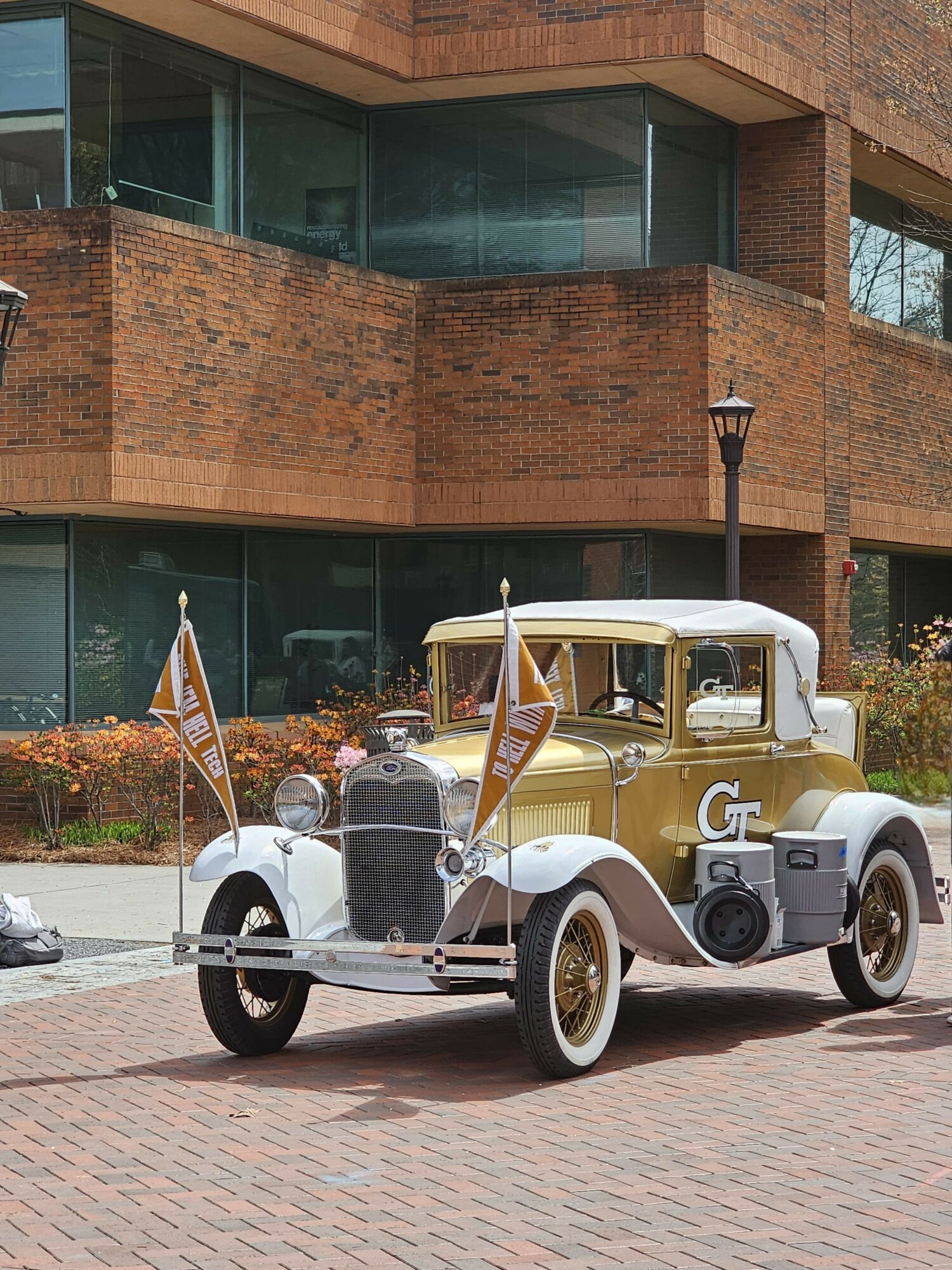
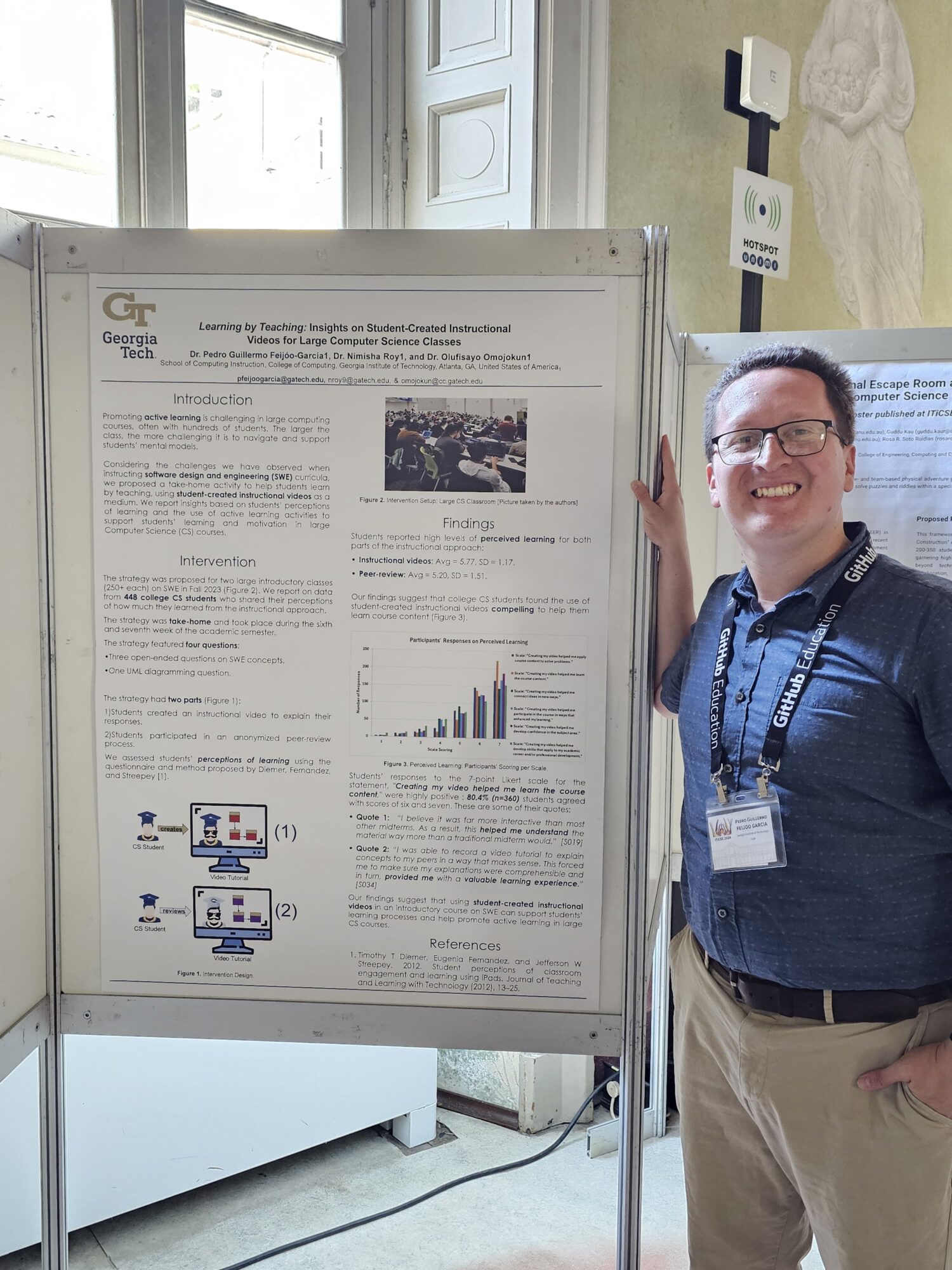
Image Credits
These pictures are mine.













